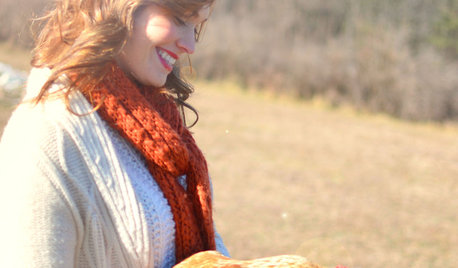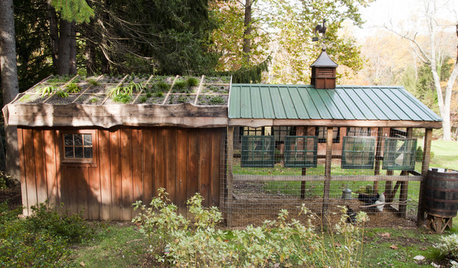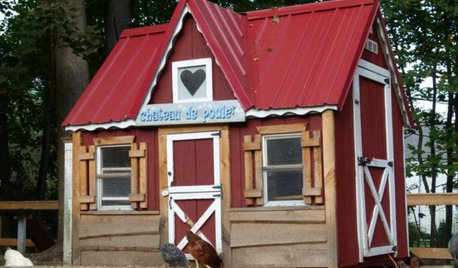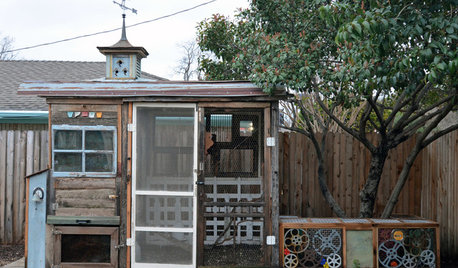Free Range Chickens
nhsuzanne
17 years ago
Related Stories

GARDENING GUIDESGet on a Composting Kick (Hello, Free Fertilizer!)
Quit shelling out for pricey substitutes that aren’t even as good. Here’s how to give your soil the best while lightening your trash load
Full Story
LIFEModern Manners for Conflict-Free Family Visits
Avoid thermostat wars, pet peeves and the great shower squeeze with these tips for having family as houseguests
Full Story
GARDENING AND LANDSCAPINGRaise Backyard Chickens Without Ruffling Neighbors' Feathers
Before you build a coop in the backyard, follow these strategies to help keep your neighbors from squawking
Full Story
FARM YOUR YARDHouzz Call: Show Us Your One-of-a-Kind Chicken Coops
Do you have a fun or stylish backyard shelter for your feathered friends? Post your pictures and stories in the Comments!
Full Story
GARDENING AND LANDSCAPINGChicken Coops That Rule the Roost
These 8 chicken coops designed by Houzz users will have you clucking in admiration — and maybe even planning a henhouse of your own
Full Story
OUTBUILDINGSQuirky Meets Practical in a Dallas Chicken Coop
These hens have a stylish backyard coop built from recycled materials
Full Story
INSPIRING GARDENSChickens, Chess and Swimming Star in a Silicon Valley Yard
Some fowl play is afoot in these outdoor rooms, but the family members and their many guests have a pretty good time too
Full Story
LANDSCAPE DESIGN15 Great Ideas for a Lawn-Free Yard
End the turf war for good with hardscaping, native grasses and ground covers that save water and are easier to maintain
Full Story
MOST POPULAR10 Reasons to Get Rid of More Clutter
From a calmer mind to a more workable closet, the benefits of streamlining are just a few trash bags away
Full Story
BUDGET DECORATING21 Free Ways to Give Your Home Some Love
Change a room’s look or set a new mood without spending anything but a little time
Full Story





GennyM
velvet_sparrow
Related Professionals
Concord Landscape Contractors · Cliffside Park Landscape Contractors · Concord Landscape Contractors · Cordele Landscape Contractors · Desert Hot Springs Landscape Contractors · Doctor Phillips Landscape Contractors · Ellensburg Landscape Contractors · Fort Worth Landscape Contractors · Salem Landscape Contractors · Tustin Landscape Contractors · Arcadia Fence Contractors · Carmichael Fence Contractors · Chesterfield Fence Contractors · Lancaster Decks, Patios & Outdoor Enclosures · Provo Decks, Patios & Outdoor EnclosuresRoberta_z5
nhsuzanneOriginal Author
Roberta_z5
nhsuzanneOriginal Author
GennyM
judyag_44
ohiorganic
Roberta_z5
HerringboneD28
GennyM
judyag_44
Roberta_z5
skagit_goat_man_
judyag_44
natalie312
runningtrails
seramas
runningtrails